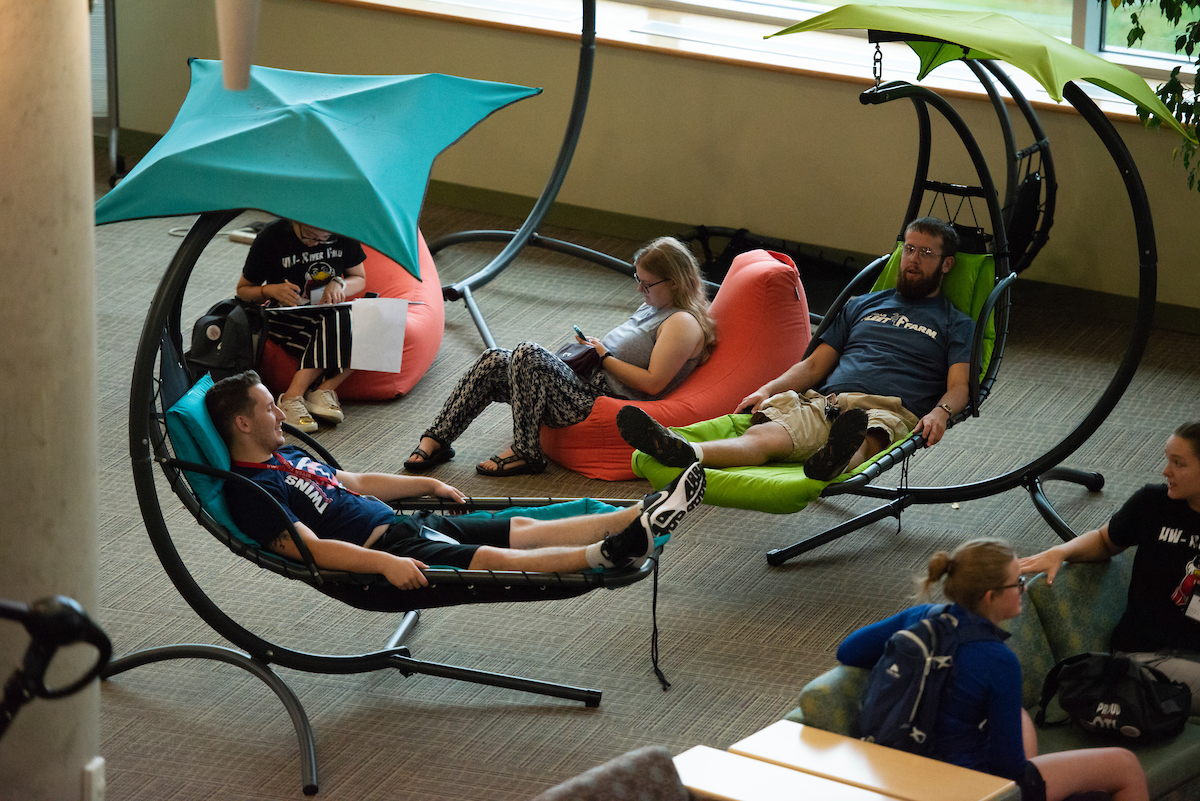UNIVERSITY OF WISCONSIN River Falls
First Year Student Blog
Balancing School With Personal Health

There are so many wonderful things to experience while at college, but sometimes those experiences can also be accompanied by heightened levels of stress. As a student, you have an increased workload, higher expectations in terms of your academics, and you’re also learning to manage a new kind of independence—all of which can lead to increased stress! Some amounts of stress are normal and healthy.
Stress can actually help us make sure we are staying on track and getting things done. However, there are times that the stress we are experiencing can be too much and it can begin to interfere with our ability to be healthy and productive. It is important to learn how to recognize, identify, and manage the stress in your life in order to be the best version of yourself. Here are some common symptoms that might indicate that you are experiencing more serious levels of stress:
- Headaches
- Frequent sickness
- Fatigue and insomnia
- Changes in sex drive
- Digestive issues
- Changes in appetite
- Depression
- Rapid heartbeat
- Increased sweating
Source: Healthline

Another good practice in minimizing stress is learning to say “no.” It can be tempting to take every available opportunity to do things with friends but recognizing when you need to use that time to take care of yourself is important.
In addition to these ways, there are many other things you can do to relieve stress. Perhaps try:
- Exercising
- Reducing your caffeine Intake
- Journaling
- Chewing gum
- Spending time with friends or family
- Laughing
- Doing yoga
- Cuddling
- Listening to soothing music
- Deep breathing
- Spending time with pets or other animals
- Eating healthy foods
- Making time for hobbies/interests
- Getting enough sleep
Source: Healthline












